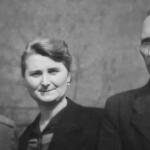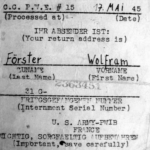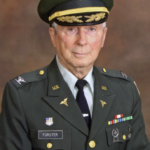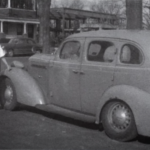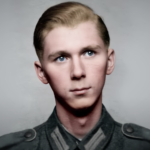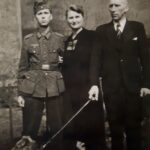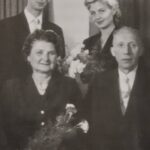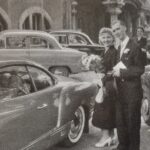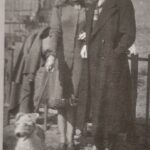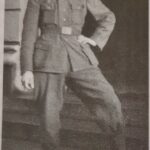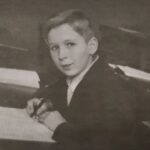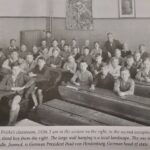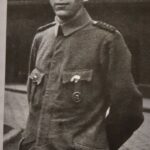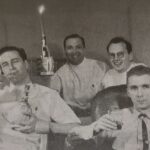Wolfram Forster was born October 22, 1925, in Berlin, Germany. He grew up in that city during the interwar years, witnessing the political changes that were taking place around him as he attended school. Wolfram’s father was a Great War veteran who became a police officer, and who later fired when he refused to join the Nazi Party. He was conscripted in the Second World War and served a short period of time in Poland at the outset of the war. All the while his young son did well at school and was recommended to go on to higher education, eventually in the direction of medicine. The family saw the buildup of antisemitism and persecution and once the war was underway they dealt with the restrictions and air raids. Wolfram was in the Hitler Youth – as was mandatory – and when he was given a choice of direction, he chose first aid, something that would guide him in the war and in the rest of his life. Wolfram and his family also learned to be careful during this time; they heard stories of people executed for “sabotaging the war effort”, so even listening to BBC broadcasts could put them in jeopardy. Wolfram was drafted into the army when he was 19, and he was sent to Denmark, what the Germans called the “Whipped Cream” Front. Wolfram’s luck came to an end though: he was shipped to Pomerania, where he and his troop came under Russian artillery fire. Wolfram was quite ill at this point, and he was hospitalized, suffering from an infection. He was given time to see his parents, and then in short order was sent back to the front – the western front. One day he was in a field with his fellow German soldiers and they came under artillery fire; Wolfram took cover, and after the firing stopped three American soldiers came upon him, and Wolfram was taken as a prisoner of war – on April 10, 1945. He was in American custody for several months, and in July he was transferred to the French and moved to Colmar. Here he and the other prisoners were used for demining, dangerous work where Wolfram recalls that many of the men were killed and maimed. The French held Wolfram until 1947, when he made his way back to Berlin; he went through the American sector, and upon entering the Soviet zone he was taken prisoner again. He was held for a time and then unexpectedly released to his parents. Wolfram returned to his medical studies and went to do his internship in New Jersey. He loved the US and wanted to make it his home, but the bureaucracy did not allow it; back in Germany though, he was able to secure a job at the Bitburg Air Force Base, and that became his ticket for an eventual return to the US, where he would make a career in the army, achieving the rank of colonel in the medical corps. Dr. Wolfram Forster was interviewed over zoom in July 2023.
Videos
Click next video below to keep watching
